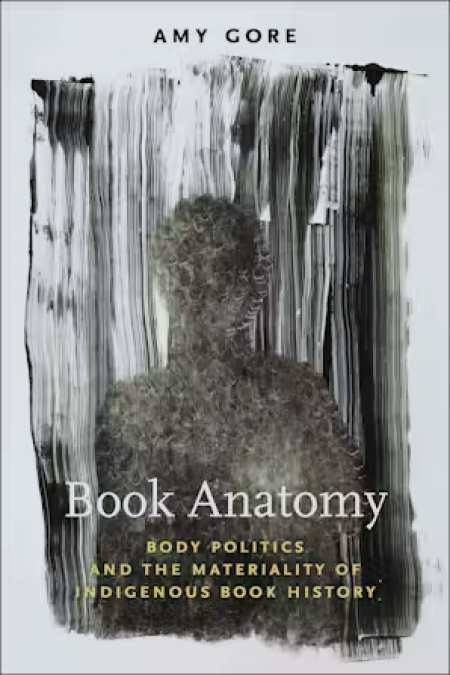
American Antiquarian Society
185 Salisbury Street
Worcester, MA 01609
United States
Books bear the imprint of our humanity, from the social and cultural means of their production to the notes written in their margins. And Indigenous books, embodying the marks, traces, and scars of colonial survival, are contested spaces. These publications, authored by Native Americans during the long nineteenth century, included a variety of nontextual components‒‒illustrations, typefaces, explanatory prefaces, appendices, copyright statements, author portraits, and more‒‒shaping how they were read and understood.
Centering Indigenous writers, Book Anatomy explores works from John Rollin Ridge, Sarah Winnemucca Hopkins, Pretty Shield, and D’Arcy McNickle published between 1854 and 1936. In examining the relationship between Indigenous books and a mainstream literary marketplace, Amy Gore argues that the reprints, editions, and paratextual elements of Indigenous books matter. They embody a frontline of colonization in which Native authors battle the public perception and reception of Indigenous books, negotiate representations of Indigenous bodies, and fight for authority and ownership over their literary work.

Amy Gore, assistant professor of English at North Dakota State University, specializes in early and nineteenth-century American literature, book history and print culture, and Native American literature. Her first book, Book Anatomy: Body Politics and Materiality in Indigenous Book History (University of Massachusetts Press, 2023) theorizes the material relationships between books and bodies to claim the book itself as a form of embodied power relations between Native authors and the American publishing industry. Her forthcoming second book, co-edited with Daniel Radus, is an edited collection of scholarly essays titled Gatherings: New Directions in Indigenous Book History. She is a senior fellow in the Andrew W. Mellon Society of Fellows in Critical Bibliography. Her research has also been supported by the National Endowment of the Humanities and with a Reese Fellowship (2024-25) at the American Antiquarian Society. Her work appears or is forthcoming in several edited collections, and her articles appear in Studies in American Indian Literature; Pedagogy; and Western American Literature.